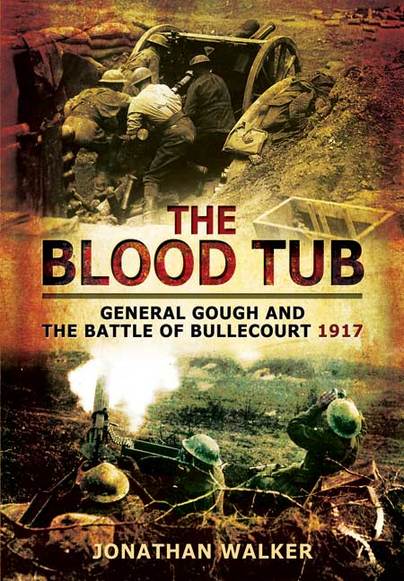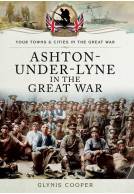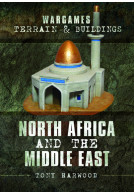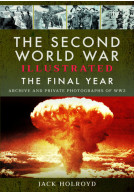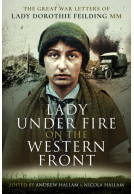The Blood Tub (Hardback)
General Gough and the Battle of Bullecourt 1917
Imprint: Pen & Sword Military
Pages: 220
ISBN: 9781473827547
Published: 4th March 2015
(click here for international delivery rates)
Need a currency converter? Check XE.com for live rates
| Other formats available - Buy the Hardback and get the eBook for free! | Price |
|---|---|
| The Blood Tub ePub (17.4 MB) Add to Basket | £6.99 |
This controversial and stirring account of one of the bloodiest battles of the Great War recounts a heroic but disastrous engagement which left a lasting rift between the British and Australians. Drawing from a wealth of unpublished sources and eyewitness accounts, Jonathan Walker's study of the Battle of Bullecourt is vital to an understanding of the difficulties that faced Great War commanders. Central to The Blood Tub is a reassessment of Sir Hubert Gough, one of the Great War's most colourful generals.
In the late spring of 1917, the Allies attacked at Arras, and a combined British and Australian force under General 'Thruster' Gough assaulted the fortress village of Bullecourt. Despite using the new wonder weapon, the tank, Gough's first attack ended in disaster and bitter recriminations. He then launched a second massive attack. For the next two weeks, the Battle of Bullecourt dominated British offensive action on the Western Front. It was the excessive brutality and ferocity of the hand-to-hand fighting that earned Bullecourt the name 'Blood Tub'.
'An excellent, even handed account of a highly contentious battle…Walker debunks many myths.' British Army Review
'Jonathan Walker has produced a comprehensive and most readable account… For serious students, and those simply interested in this period, it is a great read.' Journal of the Australian War Memorial
'Walker's command of the sources held in archives in Britain and in Australia is masterly. This allows him to move easily from the concerns of high command to the experiences of the PBI, and to produce a picture of Bullecourt 'in the round'…The Blood Tub is a well-researched, well-written, and analytical account of the battles for Bullecourt in 1917.' Professor Gary Sheffield, Military Illustrated
'Deeply researched and well-written. For the serious student of war, The Blood Tub will repay thoughtful reading.' Tank Journal
Jonathan Walker has a background in both academia and broadcasting, so it is perhaps not surprising that this offering from Pen and Sword Books combines a detailed historical analysis with an engaging writing style. Focussing on an important battle that is too often overlooked in battlefield tours and documentaries, Walker provides a detailed insight into the battlefield itself, and some of the key figures involved, including General Gough of course.
Friends of the National Archives
This is an extremely engaging read covering an important period in the First World War. It combines a detailed review of the action on the ground with an analysis of Gough's role and decisions as commander. For those with a good knowledge of the conflict in general, and who want to delve in more detail into this particular offensive, it is highly recommended.
The author is known for his careful and detailed research and these qualities again stand out from the nicely paced text. There is illustration in the form of photo plates and maps. This is the story of a battle that was costly and, arguably, should never have been fought as it was. It caused friction between the British and the Australians, but the war of attrition that was the story of the Western Front made few concessions to damage limitation. This book provides a clear and unbiased account of the action with fresh insight and thorough study of available British and Australian primary source material. No reader with an interest in the war on the Western Front can avoid reading this well-written account because it also provides some information and insights that fit well with other accounts of the fight along the line of opposing trenches. Recommended reading.
FIRE Project
First published back in 1998, this book makes a welcome return as the author produces an excellent, even-handed account of one of the most horrific episodes of the Great War: the Battle of Bullecourt.
The Great War Magazine
Highly commended.
10/10
'Well-researched and thorough account of one of the most horrific episodes of the First World War.'
Soldier magazine.
'The width and soundness of The Blood Tub's research both here and in Australia's yields a mass of diary material...This is a thorough,
Journal of the Society for Army Historical Research.
lucid and unbiased account of Bullecourt that must be the standard work on the ghastly battle.'
'Deeply researched and well-written. For the serious student of war, The Blood Tub will repay thoughtful reading.'
Tank Journal
'Walker's command of the sources held in archives in Britain and in and in Australia is masterly. This allows him to move easily from the concerns of high command to the experiences of the PBI,and to produce a picture of Bullecourt "in the round"...The Blood Tub is a well-researched, well-written, and analytical account of the battles for Bullecourt in 1917.'
Professor Gary Sheffield, Military Illustrated.
'Jonathan Walker has produced a comprehensive and most readable account...For serious students, and those simply interested in this period, it is a great read.'
Journal of the Australian War Memorial
An excellent, even handed account of a highly contentious battle...Walker debunks many myths.
British Army Review
The book is a detailed, graphic and controversial history of one of the bloodiest battles of World War One. It tells the story of General Gough and the Battle of Bullecourt in 1917, and reveals how this disastrous engagement created a lasting rift between the British and Australians.
Sidmouth Herald
About Jonathan Walker
Jonathan Walker is an established military history author and lecturer, is a regular contributor to BBC radio and TV documentaries and is a regular visitor to battlefields. He is an Honorary Research Associate, University of Birmingham and a member of the British Commission for Military History. He lives in Sidmouth, Devon.







